10 payments fintechs to watch in 2020
The global payments landscape is teeming with hordes of technology companies, and ferreting out the champions is no easy task. Mohamed Dabo combsthe sector and analyses the ten fintechs set to dominate this year
Over the past few years, fintech startups have gained scale and moved into new geographies. They continue to build a financial stack from the ground up. Those trends should continue gaining speed and significance this year.
However, the companies that have revolutionised the financial industry are themselves in need of a major shift of focus, for the sector has entered a new phase of maturity. It’s no longer enough for fintechs to simply innovate and disrupt; they must now show that they can be profitable.
What’s more, this adaptation takes place in a fast-moving environment. Indeed, change in payments has gone into overdrive. This will only get faster.
From digital disruption and the race to innovate to regulatory requirements and customer demands, traditional payments players are being squeezed from all sides. The pressure will not let up.
A new generation of customers, an emphasis on experiences beyond the transaction, uncommon collaboration, and systems modernisation — any one of these trends in isolation is a game changer.
Together, they point to an entirely new future for the payments industry. With the right vision, this future holds great opportunities for banks, credit card companies, and newcomers to the payments ecosystem.
The handful of startups presented below have shown exceptional abilities to handle the challenges and seize the opportunities.
Payment heroes
The 10 payments fintech companies we feature here are not waiting for change to happen to them. They are already busy capturing first-mover advantage by evolving business strategies, operating models, systems and cultures—and by buckling up for what promises to be a wild ride.
In a dynamic industry that continues to expand end evolve, these are the payments players of today and the immediate future.
1.COINBASE
(founded: 2012; San Francisco, California)

Coinbase is a digital currency wallet and platform. It enables merchants and consumers to transact with new digital currencies like bitcoin, ethereum, and litecoin.
After making its mark as a safe and regulatory-compliant crypto exchange, Coinbase has branched out to offer crypto custodial service to institutions. It also offers a personal wallet and new currencies designed to appeal to those seeking more privacy.
In December 2019, the company was granted a US patent for an invention that allows Bitcoins to be sent by email. The invention is expected to widen the adoption of Bitcoin.
The patent filing read:
“No miner’s fee is paid by a host computer system. Instant exchange allows for merchants and customers to lock in a local currency price. A tip button rewards content creators for their efforts. A Bitcoin exchange allows for users to set prices they are willing to sell Bitcoin and execute such trades.”
Coinbase recently added five new cryptocurrencies to its offering: BAT, REP, XLM, XRP and ZRX. This new batch, added to the previous four—BTC, ETH, BCH and LTC—raises the total number to nine cryptocurrencies.
The company has also launched in 10 additional international locations: Bulgaria, Croatia, Denmark, Hungary, Iceland, Liechtenstein, Norway, Poland, Romania, and Sweden.
Global ambitions
Coinbase has a variety of features that, the company says, “make it the best place to start trading”:
It lets customers manage their portfolios: they can buy and sell popular digital currencies, keep track of them in the one place.
It makes recurring buys convenient: customers can invest in cryptocurrency slowly over time by scheduling buys daily, weekly, or monthly.
It offers vault protection: for added security, customers can store their funds in a vault with time delayed withdrawals.
Coinbase CEO Brian Armstrong—now a billionaire based on his Coinbase holdings—says his goal is “building a mission-driven open financial system for the world”.
In pursuit of this goal, the company provides financing to promising early stage companies “that have the teams and ideas that can move the space forward in a positive, meaningful way”.
“We’re taking a long term view of the space, and we believe that multiple approaches are healthy and good,” Armstrong said. “Our goal is simply to help the most compelling companies in the space flourish.”
2.MONZO
(founded: 2015; London, UK)

Monzo Bank is a neobank, and one of the earliest of a number of new app-based challenger banks in the UK. The fintech originally operated through a mobile app and a prepaid debit card.
In April 2017 their UK banking licence restrictions were lifted, enabling them to offer a current account. The bank developed a strong following and grew into a full-fledged bank.
Now, “40,000 people open a Monzo bank account every week to spend, save and manage their money,” the bank claims.
In 2019, the bank launched a new feature called “Get Paid Early”.
There are two main ways to get paid a salary in the UK: the ‘Faster Payments Service’ (FPS) and Bacs (which stands for ‘Bankers Automated Clearing Service’). If you’re paid by Bacs then the Get Pay Early plan allows you to get your salary one day sooner.
Through Get Paid Early, payment will come into a customer’s account at 4pm the day before they get paid, instead of at midnight.
Monzo explained that the Bacs, which is used for most salary payments, can be sped up but most lenders choose not to do it. The system normally takes three days to clear the transaction.
Monzo is able to offer it because it can be confident the money will actually arrive into your account because it can see the money coming into the system. This is because, when a Bacs payment goes through, the receiving bank can see it on their system the day before it is due to clear.
It is a savvy move designed to encourage more customers to use Monzo’s current account as their sole bank account by getting their salary paid in.
Highest customer satisfaction score
When the bank launched its signature hot coral cards as prepaid Mastercard, many people came to Monzo by using it as a secondary account. The challenger officially shut down its prepaid programme last April 2019, moving everyone over to a current account.
Along with other app-based banks such as Starling Bank, Monzo has been becoming increasingly popular with consumers over the last couple of years. It now boasts more than two million account holders.
In a recent banking satisfaction survey, it received the highest customer score (86%). Throughout 2019, the bank kept developing its offering. It launched savings accounts in March, a mortgage partnership in July and loans in August.
3.Circle
(founded: 2013; Boston, Massachussetts)

Circle is a peer-to-peer payments technology company. Circle's mobile payment platform, Circle Pay, allows users to hold, send, and receive traditional fiat currencies.
In September 2015, Circle received the first BitLicense issued from the New York State Department of Financial Services. In April 2016, the British government approved the first virtual currency licensure to Circle.
Up until December 2016, Circle Pay also operated as a Bitcoin wallet service to buy and sell Bitcoins. It has since ceased to provide such service, claiming the company "is now more than ever not a consumer bitcoin exchange, and will continue to focus resources on global social payments and future next-generation blockchain technology".
With offices in Boston, New York, San Francisco, Dublin, London and Hong Kong, the company has caught the attention of Jim Breyer (Facebook), Goldman Sachs, IDG Capital (Baidu, Tencent), General Catalyst (AirBnB, Snapchat) and Accel Partners who have supported the company with $250 million.
A centre for stablecoins
One of Circle’s latest initiatives is the creation of stablecoin infrastructure services that enable financial innovation by developers and businesses of all sizes.
Circle’s founder Jeremy Allaire has been a big advocate of stablecoins. He believes “the public and private sector should come together to support the development of global stablecoins backed by central bank money and regulated through new forms of public and private partnership.”
A stablecoin is a new class of cryptocurrencies that attempts to offer price stability and are backed by a reserve asset.
Stablecoins have gained traction as they attempt to offer the best of both world’s—the instant processing and security or privacy of payments of cryptocurrencies, and the volatility-free stable valuations of fiat currencies.
Earlier this year, Circle partnered with crypto exchange fintech Coinbase to form an endeavour called Centre Consortium, to developing USDC under the centre’s name.
The initial implementation is USD Coin (USDC), an ERC-20 token. This will “create possibilities in payments, lending, investing, trading and trade finance — and the ecosystem will grow as other fiat currency tokens are added,” the partners said.
USD Coin (USDC) is another name for stablecoin. You can always redeem 1 USD Coin for US$1.00, giving it a stable price.
The Centre’s stablecoins are issued by regulated and licensed financial institutions that maintain full reserves of the equivalent fiat currency. Issuers are required to regularly report their USD reserve holdings, and Grant Thornton LLP issues reports on those holdings every month.
4.Starling Bank
(founded: 2014; London, UK)
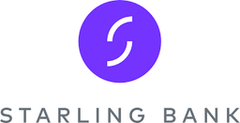
Starling bank is an online-only challenger bank that is disrupting traditional banking through innovation and the use of technology.
The bank has four different account types – personal, business, joint and euro. All of Starling’s accounts are protected up to £85,000 by the Financial Services Compensation Scheme.
Starling bank has grown rapidly and is reportedly on track to reach profitability by the end of 2020. Over the past couple of years, the Bank has won a number of awards such as Best British Bank and Best Current Account 2019.
The challenger bank has raised £263m in backing. The bank has passed one million customer accounts, netting £1bn in deposits.
Starling Bank has built and released mobile apps for both iOS and Android phones.
Starling were also the first UK bank to have in-app provisioning for Apple Pay. The features of Starling's mobile apps include instant notifications of transactions, freezing and unfreezing customer's cards to prevent unauthorised transactions. It categorises transactions for later analysis, creating separate "Goals" where money can be stored separately to customer's main balance and in-app chat with customer service representatives, among others.
A different approach from old-school banking
Starling has built its own Open Banking API which is distributed in the form of a "marketplace" to allow customers to use their data with other financial products.
The bank also offers a 'Settle Up' feature, where customers can send money to their contacts. They also have a cash depositing partnership with the Post Office.
Beyond its headquarters in London, the fast-growing company has offices in Southampton, Cardiff and Dublin. The bank is independent, privately-owned and not a part of any other bank.
The bank—which recently extended stock-buying options to all its employees—is 24% owned by founder and CEO Anne Boden. She helped create UK’s CHAPS real-time system and has worked for major banks like Lloyds and Allied Irish Bank.
Among Starling’s notable investors is Harry McPike, a global private investor with a focus on technology and financial sector opportunities.
He is represented on the board by two investor directors: Lázaro Campos, a fintech investor and entrepreneur and former CEO of SWIFT, and Marcus Traill, a senior investment management professional and director of QuantRes, a global proprietary quantitative trading firm.
Another investor is Merian Global Investors, a leading public investor in the UK.
5.Wagestream
(founded: 2018; London, UK)
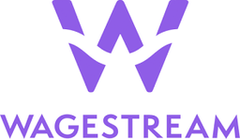
Wagestream Integrates with HR Systems to Provide Instant Pay for UK Employees.
The startup gives employees the power to access their earned wages whenever they need them. It gives employees access to wages as they are earned “to reduce workplace stress and increase employee engagement and performance”.
If your employer works with Wagestream, the fintech will allow you to withdraw a good chunk of your monthly wage early if you need it. In return, there’s a flat fee that’s among the lowest available on the market.
Wagestream’s Help-To-Save option, which allows employees to automatically put aside a part of their salary.
Unlike many of its competitors, Wagestream chooses not to offer employee loans. These are debts whose repayments are automatically taken from the employee’s salary. Employee loans are different from salary advances because the former charge interest.
Easy for employees
For employees, Wagestream has made everything easy. Once you’ve registered with the service, you can download the app and see how much you’ve earned so far for the month.
If you need it, you can withdraw up to 40% of it. Once you’ve made the request, the money will be instantly transferred to you and you’ll be charged a flat £1.75 fee. You’ll also be able to access tips and articles on financial wellness that Wagestream has created with the Money Advice Service.
Wagestream will customise usage controls, and set up an employer portal to give you complete oversight on how your employees are using our financial wellness services.
Beneficial to employers
For employers, Wagestream offers obvious benefits. Setting up the service typically takes 7–10 working days, and Wagestream will provide training to all your staff who need it. It costs between £1 and £2 per employee per month (depending on how big the company is).
One great advantage for employers is that the service will not affect the company’s cash flow. Wagestream will be covering the advances from the moment they’re taken out and payday. Your company’s credit score will be checked, but the service is interest-free.
A growing list of partners
Wagestream has an expanding list of partners. All the partners are reportedly seeing up to a 40% increase in staff retention, 10% increase in employee productivity and a huge competitive recruitment advantage.
By offering flexible daily pay to employees, they are said to experience as much as a 10-fold increase in job applications. Backed by Jeff Bezos and Mark Zuckerberg, Wagestream has so far raised an impressive £44.5m.
6.N26 Bank
(launched: 2015; Berlin)
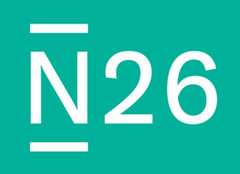
N26 is a mobile bank that helps you manage your bank account on the go. The fintech provides a bank account that comes with a Mastercard debit card.
Opening the mobile-app based account takes a paperless sign-up process that can be completed on a smartphone or computer, with identification verified by a video or selfie.
Customers have to choice of opening three different types of account. The N26 current account charges no monthly fee. The N26 You account charges £4.90 a month in the UK. And the N26 Metal account has the most features and charges £14.90 per month.
Every account is protected by the Compensation Scheme of German Banks for up to €100,000 in every country where N26 is available.
N26 comes with features to offer a smoother banking experience with your lifestyle in mind – transfer money to N26 contacts in seconds with MoneyBeam, withdraw cash at the checkout using CASH26, and there are no fees on card payments, even in foreign currency abroad.
If a customer loses his or her card, it’s easy to block or unblock it with a couple of taps inside the app. The fintech also provides an in-app LiveChat in five languages.
N26 charges on foreign transaction fee. Customers can withdraw cash for free in foreign currency from ATMs around the world. They can pay using their N26 their Mastercard online and in stores with zero fees.
Growth and international expansion
N26 is one of the first app-based banks founded in 2013 and launched in 2015 by founder Valentin Stalf and Maximilian Tayenthal.
The company initially launched in Europe, where it quickly acquired 2.4 million customers in 24 markets, including the UK where it launched in late 2018. The company launched in the US in July 2019.
Behind the scenes, there are a few differences between N26 in Europe and N26 in the U.S. While N26 has a full-fledged banking license in Europe, the company has partnered with Axos Bank, which is acting as a white-label partner in the U.S.
Axos Bank essentially manages your money for you, and N26 acts as the interface between customers and their bank accounts. As a result, you get an FDIC-insured account.
N in N26 stands for “number” – the “umber” part was dropped in the company’s early days. The 26 is the number of smaller cubes in a complete Rubik’s Cube. “The cube is complex, but if you know the correct sequence of moves, you can solve it quickly and elegantly. We try to apply the same approach to banking,” the company says.
N26 currently offers its services throughout most of the Eurozone, as well as in the UK, Switzerland, and US and Brazil.
7.Lunar Way
(founded: 2015; Aarhus, Denmark)
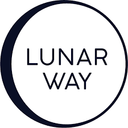
Lunar way is a digital mobile-based banking app that offers users a basic account, money transfers, bill payment, budgeting tool and credit lines. It also allows customers to create personalised goals. And in case they have a question, there is a live chat available.
Customers can also connect accounts in other banks to their Lunar Way app and get a full overview of their entire finance in one place. With the Lunar app, customers get an interactive budget, a personalized savings feature, spending overview, insurance, investment, and much more.
The accounts provide free transfers and free payments. Customers can also integrate external accounts in other banks to check their balance in the Lunar app.
The Nordic banking app has more than 100,000 users in Denmark, Sweden, and Norway. The startup has 100 employees across Scandinavia. Luna Way got the European banking licence in 2019 and has received nearly €47m in funding.
In 2019 the startup had two funding rounds. The first round was completed in February and secured Lunar €13m. The second round ended in August and netted an additional €26m.
A focus on the Nordic market
The Danish neo-bank was launched with the ambition of rethinking the banking experience. It now offers basic banking services through an app that has been downloaded by more than 130,000 users.
The Nordic market consists of only 27 million people but is the home of the most stable economies in the world with some of the wealthiest and tech-savvy populations on the planet.
Even though it’s known for being hard to crack for new banking entrants due to the Nordic clearing systems, and high demands for safety and payment infrastructures that vary greatly from country to country, Lunar Way has chosen to focus its efforts solely on the Nordic markets since day one.
With populations where 90% is digitally native and already has a mobile banking solution, the first challenge of the Nordics is to offer a product that is innovative, easy to manage and compelling. The next challenge is to launch a bank unlike anything the users know.
Lunar Way founder Ken Villum Klausen, who said the old ways won’t open new doors, expressed his ambition for the company:
“The future belongs to those who offer the best user experience, and it’s our ambition to be the leading financial marketplace in the Nordics. We already offer the users control of their entire personal finances, spending overview, savings, interactive budgets and up to 4% interest. The plan going forward is to collaborate with those who offer the best financial solutions out there and tie the whole thing together in the Lunar Way app. From here the user can access, view and handle all their personal finance needs.”
8.Klarna
(founded: 2005; Stockholm, Sweden)
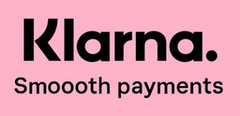
Klarna is a Swedish bank that provides online financial services such as payment solutions for online storefronts, direct payments, post purchase payments, and more.
The company’s core service is to assume stores' claims for payments and handle customer payments, thus eliminating the risk for seller and buyer. Klarna’s stated aim is to make it easier for people to shop online.
The Swedish startup is now one of the world’s largest banks and is providing payment solutions for 80 million consumers across 190,000 merchants in 17 countries, the company said.
Klarna offers direct payments, pay after delivery options and instalment plans in a smooth one-click purchase experience that lets consumers pay when and how they prefer to. When the company acquired SOFORT in 2014 the Klarna Group was formed.
Klarna is backed by investors such as Sequoia Capital, Bestseller, Permira, Visa and Atomico.
High pace of consumer acquisition
The Klarna card, currently available in Germany and Sweden, has reached more than 220,000 issued cards at the end of the period. The Klarna card and its in-demand features drive continued volume growth through both number of card holders and number of transactions.
Consumer acquisition continues at a high pace, the company said in its latest interim financial statement. By the end of September last year, Klarna added close to 15 million new consumers. This translates into more than 20 million new consumers annualised based on the September run rate.
Strong demand for Klarna’s offering from consumers, merchants and partners across all markets drives continued growth in total underlying sales volume and total operating revenue, net, 30% and 31% year on year respectively.
Total underlying sales volume amounted to almost SEK 230bn ($24bn) during the period.
Momentum in the US
The number of new consumers in the US is currently growing at an annual rate of 6 million.
In the US, the Klarna in-app shopping feature has very strong momentum, this app allowing consumers shop at any online store is resonating well since launch in May and monthly active users has grown significantly, close to 160% from July to the end of September.
In October, it was the top trending shopping app on the US Google Play Store. The Klarna app is by far the most downloaded app compared to direct competitors in the US, exceeding other apps by more than 100,000 monthly downloads.
In the UK, 6 million consumers have used Klarna’s services, and currently over 55,000 new consumers are being added weekly.
9.Spendesk
(founded: 2016; Paris, France)

Spendesk is a spend management platform for small to mid-sized businesses. It is designed for both finance teams and employees.
With flexible payments, approvals, automated receipt capture and real-time spend insights, finance can decentralize operational spending across the business without any loss of control or visibility.
Employees benefit from streamlined expense and invoice management through the Spendesk website and app. So if you're spending at work, you need Spendesk.
Spendesk’s mission is to help businesses spend smarter and free people from the hassle of spending at work.
Smart company cards for all teammates
Safe online purchases—employees use Spendesk to get access to single-use virtual Mastercard cards in a few clicks whenever they need to make a payment online.
Automated expense reporting—Mastercard cards enables employees to pay for their offline expenses. Simply set individual budgets from your Spendesk dashboard and say goodbye to expense reports.
Full mobile experience for people on the go—provides access all your payments in real time from your smartphone. Also use the app on the move to easily capture and match receipts. No more lost invoices.
Spendesk now serves more than 1,500 businesses in 30 countries across Europe. The last funds were raised in January 2018, a €8M Series A led by Index Ventures. With CFO Connect, Spendesk is building a global community of finance leaders with regular meetups across major European cities.
In September 2019, Spendesk announced it has raised €35 million in a Series B round led by Index Ventures.
This round brings the total raised to €45M. The investment will help fund product development and accelerate international expansion, with new offices opening in London and Berlin.
The Spendesk platform combines virtual and physical payment methods with approval workflows, automatic receipt capture, real-time spend analysis and invoice management.
The company said it would use the newly raised funds to strengthen its product. It plans to add market-leading features including smart analytics, support for more international currencies, wire transfers, and strategic partnerships with complementary services such as TravelPerk.
The company will also ramp up growth, with plans to hire over 100 new ‘Spendeskers’ in the next 12 months, new offices opening in Germany and the UK and the official launch in Spain and Scandinavia.
10.Greensill
(founded: 2011; London)

Greensill is a major provider of working capital finance for companies globally.
Greensill provides Supply Chain Finance to customers across Europe, North America, Latin America, Africa and Asia and works with a host of banks and institutional investors to provide solid funding streams to underpin the process.
Founder and CEO Lex Greensill said the company was born out personal experience. Greensill saw firsthand the devastating impact inefficient financial supply chains can have on a business as he grew up on his parents’ sugar cane farm in Australia.
This experience, he says, is at the heart of everything the company does.
The company is about much more than Supply Chain Finance. Greensill uses the power of financial markets to unlock capital on terms that fit the precise requirements of our clients, from 20 days to 20 years and beyond.
The company has extended more than $150bn of financing to 8m-plus customers and suppliers in more than 175 countries in the nine years since inception. We own Greensill Bank and created the world’s first Supply Chain Finance fund.
Before forming Greensill, Lex established and led Morgan Stanley’s global supply chain finance team and successfully developed supply chain finance practices for Citibank.
He is a former Senior Advisor to and a Crown Representative of Her Majesty’s Government on Supply Chain Finance and was awarded the CBE for Services to the British Economy in Queen Elizabeth II’s 2017 Birthday Honours.
Greensill’s stated goal is to make working capital, trade and structured finance more widely available, easier to access and better priced.
The company funds this initiative by working with a wide range of investors, including asset managers, banks, pension funds and our own Greensill Bank, based in Germany. Greensill provides clients with access to deep pools of capital and investors with a newly available fixed income asset.
The company has offices in New York, Chicago, Miami, Frankfurt, Bremen, and Sydney, with more than 500 specialists worldwide.